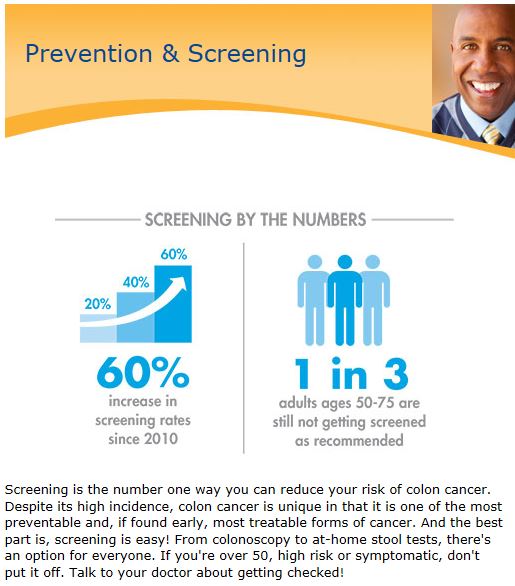
Colorectal cancer may cause one or more of the symptoms below. If you have any of the following you should see your doctor:
- A change in bowel habits, such as diarrhea, constipation, or narrowing of the stool, that lasts for more than a few days
- A feeling that you need to have a bowel movement that is not relieved by doing so
- Rectal bleeding
- Blood in the stool which may make it look dark
- Cramping or abdominal (belly) pain
- Weakness and fatigue
- Unintended weight loss
Colorectal cancers can bleed. While sometimes the blood can be seen or cause the stool to become darker, often the stool looks normal. The blood loss can build up over time, though, and lead to low red blood cell counts (anemia). Sometimes the first sign of colorectal cancer is a blood test showing a low red blood cell count.
Most of these problems are more often caused by conditions other than colorectal cancer, such as infection, hemorrhoids, irritable bowel syndrome, or inflammatory bowel disease. Still, if you have any of these problems, it’s important to see your doctor right away so the cause can be found and treated, if needed.




